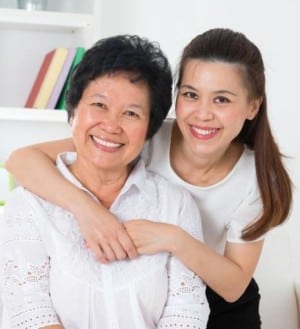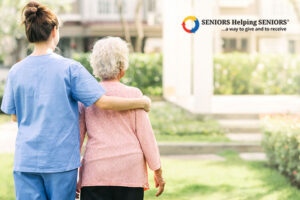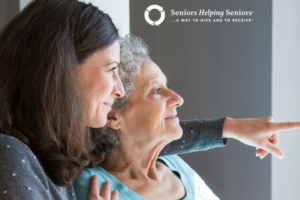Are Your Senior Loved Ones Safe When Home Alone?

Senior Safety Often Becomes the Responsibility Of Primary Caregivers.
We often meet with family members of seniors who are living alone where senior safety is discussed. It is typically a daughter but sometimes a son who calls us because they believe their parents need some assistance or supervision to remain independent and safe at home. When we meet with the family and the senior in question it is not unusual for the senior to say they are doing just fine and don’t really need any assistance. They often say their children worry too much with the underlying message “we wish they would just let us be.” The children have to try to balance their concern for their parent’s safety with their parent’s stated wish to remain independent. As well, adult children are often trying to juggle their own needs and the needs of their families with the increasing requests for help from their senior parent.
The following questions may be helpful if you are concerned with the safety of an elderly family member or friend, especially one who may be showing signs of memory loss/Dementia. A “no” response to any of the questions should be a red flag that the senior may no longer be safe at home alone. If this is the case, it may be helpful to consult with an elder care professional such as a geriatric case manager, Gerontologist or Certified Senior Advisor (CSA) who can help assess the situation and offer guidance and resources.
Senior Safety Questions:
- Does your senior loved one know how to leave the home if necessary, know where the exits are and how to use the locks?
- Do they stay close to home or have they started wandering, perhaps having to ask a neighbor or bystander how to find their house when they are out walking?
- Can they identify warning signs such as smoke from the kitchen or the ringing of a fire alarm – have you tested them recently?
- Are they able to use the phone competently, communicate their address correctly and able to dial for emergency services?
- Are they able to handle their money responsibly? Have you reviewed their checkbook to be sure they are not sending money to multiple solicitors, charities, political groups, etc.? Seniors who start contributing excessively to these groups often get targeted and put on mailing lists. They could go through thousands of dollars before anyone becomes aware of the issue.
- Is there medical condition stable? Do they have frequent emergencies that require immediate intervention?
- Are they able to manage their medications without being reminded? Have you monitored their medication intake to be sure the correct types and amounts of medication are being taken each day?
- Do they use good judgment about letting strangers into their home? Would they be able and willing to let emergency personnel in?
- Are they able to get around the house safely, use the toilet on their own, etc.?
- Can they prepare themselves something to eat when hungry? Can they use the stove and remember to turn it off?
- Are they afraid to be alone, have heightened fear of crime or break-ins, make frequent phone calls for reassurance? If they are afraid to be alone it could be a sign that at some level they know they are not capable of taking care of themselves.
Senior Living offers a comprehensive list of products and services that can help you address and solve senior safety issues.
If you think that a senior may be getting into the danger zone for staying alone, a professional caregiver can provide reassurance that your loved one’s needs are being taken care of and that their quality of life is being maintained. Caregivers can also function as the eyes and ears for family members who can’t always be available.






